Award-winning actress Maxine Peake is one of the country’s most magnetic performers, with a string of powerful roles to her name.
In ITV‘s See No Evil she simmered with contempt as Moors murderer Myra Hindley, for which she won a Royal Television Society Award.
And last year, in the Netflix series Say Nothing, her depiction of IRA terrorist Dolours Price was an expert study in pride and regret.
Her latest turn is a figure who, to some, is still no less notorious: Mary Whitehouse.
Until September 27, Peake will be on the Nottingham Playhouse stage in Caroline Bird’s The Last Stand Of Mrs Mary Whitehouse.
Will this production be another feather in Peake’s cap?
Not likely, given the theatre’s one-dimensional blurb accompanying the show.
According to the Playhouse, Mary Whitehouse was ‘a twinkly old lady’ and ‘a seemingly harmless grandmother’.
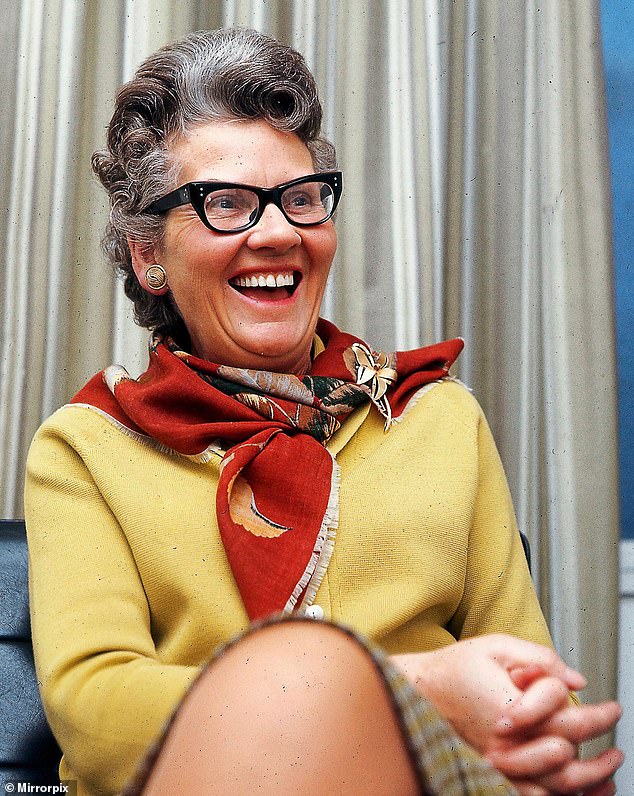
If she were on X, Instagram or TikTok today, Mary Whitehouse wouldn’t seem out of date, writes Catherine Pepinster
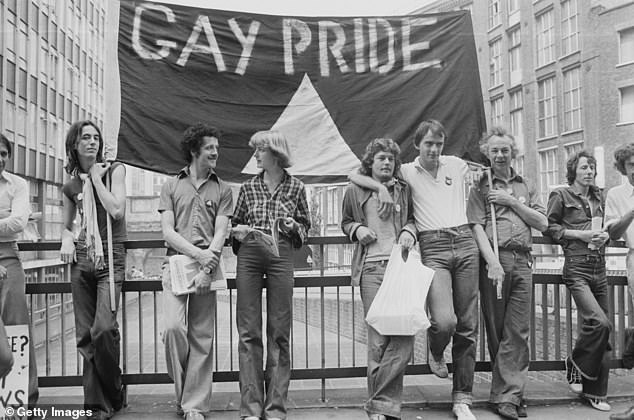
There is one issue, though, where her views do seem outmoded – and that is her opinion of gay people and her claim that homosexuality jeopardised the family. Pictured: A Gay Pride demonstration in London, in 1977
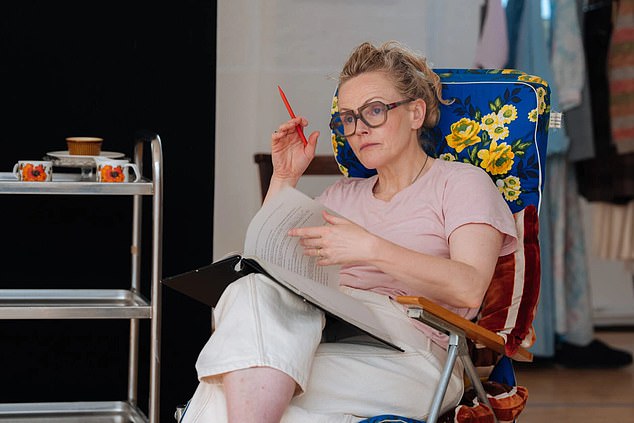
Maxine Peake is currently portraying the campaigner on stage in Caroline Bird’s The Last Stand Of Mrs Mary Whitehouse
They ask if the campaigner was a ‘pearl-clutching prude or the most dangerous woman in Britain?’
Theatregoers wanting a layered critique of the campaigner in this apparently ‘wickedly funny’ play, may be disappointed.
But Mrs Whitehouse was no stranger to tired hatchet jobs, and were she alive today one can picture her eyes rolling behind her horn-rimmed specs at the news that an avowed Lefty like Peake had been chosen to play her.
Mocking Mary and her Clean Up TV campaign has long been a cherished sport for theatre luvvies, television executives and influential journalists.
From satirists of the 1960s, such as Ned Sherrin, to Spitting Image and David Baddiel’s 1990s Mary Whitehouse Experience, she was considered a figure of fun.
But the most personal attack came when the BBC aired Swizzlewick, a 1964 drama lampooning a fictional Midlands family.
It charted the life of Mrs Smallgood, who ran a ‘Freedom From Sex’ campaign and lived with her husband Ernest the postman – at a time when the real-life Mrs Whitehouse lived with her husband Ernest in Postman’s Cottage.
The treatment was a sure sign that she had got under the BBC’s skin. Its bright young things – all post-war baby boomer graduates hailing from Oxbridge – wanted to push Auntie’s artistic boundaries, working out that there were no limits on what you could do on the box, compared to censorship back then in the theatre.
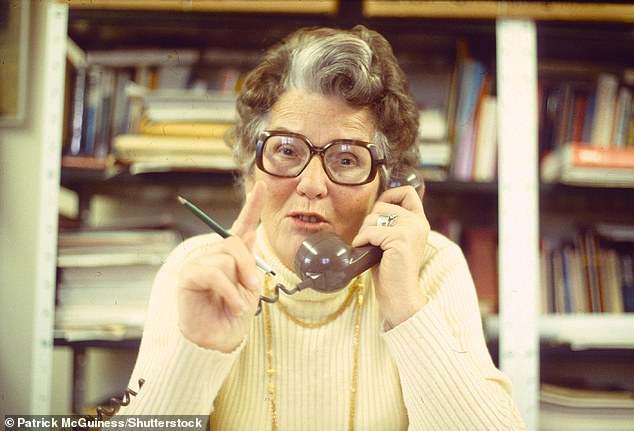
The issues she raised – the drip-drip effect of highly sexual content on children, how what was once considered pornography had become mainstream, and the impact on those performing it – are topical now. Pictured: Whitehouse in 1981
Only Mrs Whitehouse was concerned about what their heedlessness was doing to young minds.
TV producers, and in particular their leader BBC Director-General Hugh Carleton Greene, dismissed her as a busybody housewife. Get with the sexual revolution, Mary!
Perhaps it was this broad-mindedness that allowed rampant paedophile Jimmy Savile to stalk the Corporation’s corridors for so long.
But her patronising critics got her completely wrong. Rather than an ignorant reactionary, she was an art teacher and senior mistress at a girls school.
She understood the importance, and the power, of the visual image.
Not only did this help her understand the small screen’s impact but also influenced how she looked, from her trademark glasses to the bright colours she wore to get noticed.
She even adopted the 1960s shorter hemlines – hardly the prude. A photo of her with Mick Jagger on a 1968 chat show, hosted by David Frost, has her showing plenty of leg with her skirt well above the knee.
She and Jagger got on surprisingly well, with her saying later: ‘I wasn’t what he expected. He said he felt we had a rapport.’
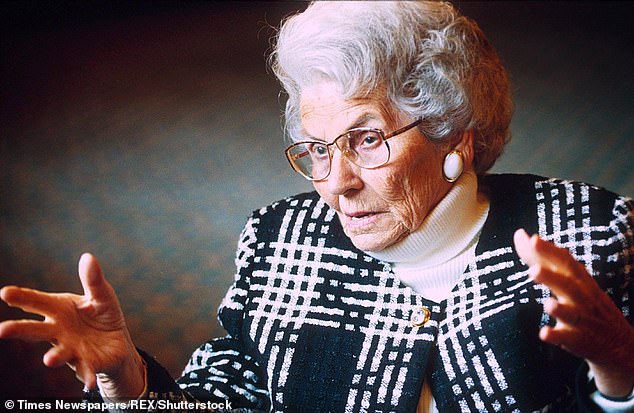
You can draw a straight line between her calls for monitoring of standards and the TV regulator we have today – Ofcom – which most people would now agree should have a say on the depiction and portrayal of sex, violence, taste and decency
If Jagger spotted her calibre, he wasn’t the only one.
Anthony Smith, who ran the influential BBC show 24 Hours – one of the producers Mrs Whitehouse would frequently phone with her comments – once said of her: ‘There is no denying that she has star quality – I think she could have proved this in any field. She unquestionably exercises real influence.’
Note the use of that word influence. For she was, in effect, one of the first influencers – long before social media.
If she were on X, Instagram or TikTok today, she wouldn’t seem out of date. For the issues she raised – the drip-drip effect of highly sexual content on children, how what was once considered pornography had become mainstream, and the impact on those performing it – are topical now.
There is one issue, though, where her views do seem outmoded – and that is her opinion of gay people and her claim that homosexuality jeopardised the family.
The subject of Peake’s play is Mrs Whitehouse’s row with the fortnightly newspaper Gay News, which had published a poem about a Roman centurion having erotic fantasies about the body of Jesus on the cross.
She took the publisher to court in 1976 and won, with the judge agreeing that the publication and author were guilty of blasphemy.
Homophobia, no doubt, is one of the main reasons that the liberal establishment still can’t stand her. But in so readily holding her up to ridicule and contempt, they are ignoring what else she stood for.
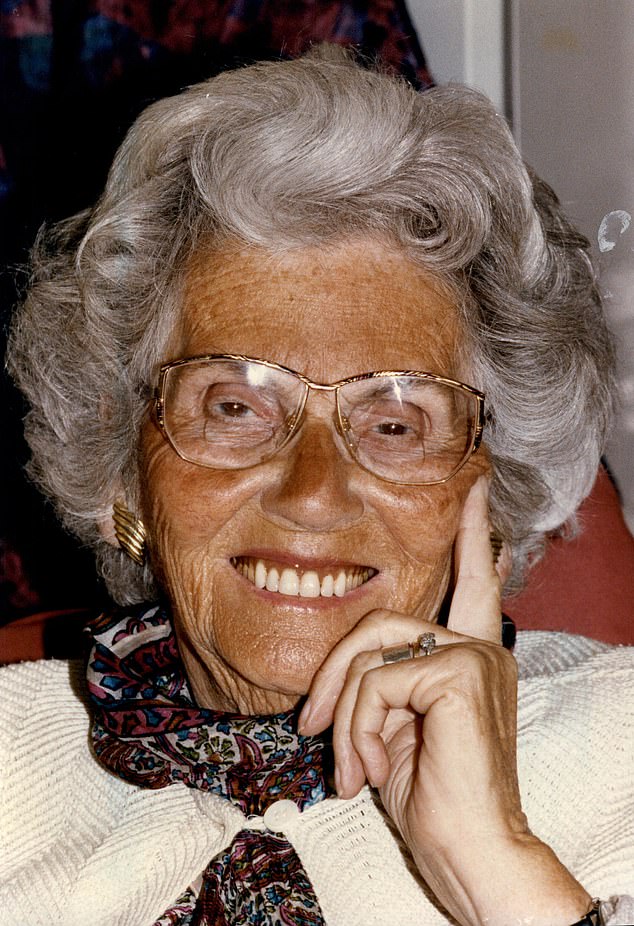
Whitehouse’s campaigning to get something done about child exploitation led directly to the Protection of Children Act 1978, which criminalised indecent photos of children
Before Mrs Whitehouse, what you saw on TV was down to those boundary-pushing producers only.
You can draw a straight line between her calls for monitoring of standards and the TV regulator we have today – Ofcom – by way of other bodies, which most people would now agree should have a say on the depiction and portrayal of sex, violence, taste and decency.
Similarly, her campaigning to get something done about child exploitation led directly to the Protection of Children Act 1978, which criminalised indecent photos of children. She was also instrumental in the passing of the 1984 Video Recordings Act, which banned the cheap, depraved horror flicks known as video nasties.
Midlands-based Mrs Whitehouse, for once rattled by the constant vilification of those who thought they knew better than her, once said to a BBC news editor: ‘It’s almost as though anyone who lives as far away from London as I do can’t exist as a real person.’
If the world was turned upside down during that era, its consequence was merely that another group of people got powerful – and then in turn didn’t want to be challenged.
Mrs Whitehouse took them on, and they have never forgiven her for it.
Yet look at the way the world is now. A world in which young women become social media personalities for live-streaming themselves having sex with a queue of men.
A world in which appearing on pornography sites such as OnlyFans has become a side hustle for cash-strapped students.
A world in which, through their smartphones, the very worst of the internet exists in the palm of children’s hands.
We could do with tough, articulate commentators like Mary Whitehouse to call out what those with power and influence are doing to Britain.











